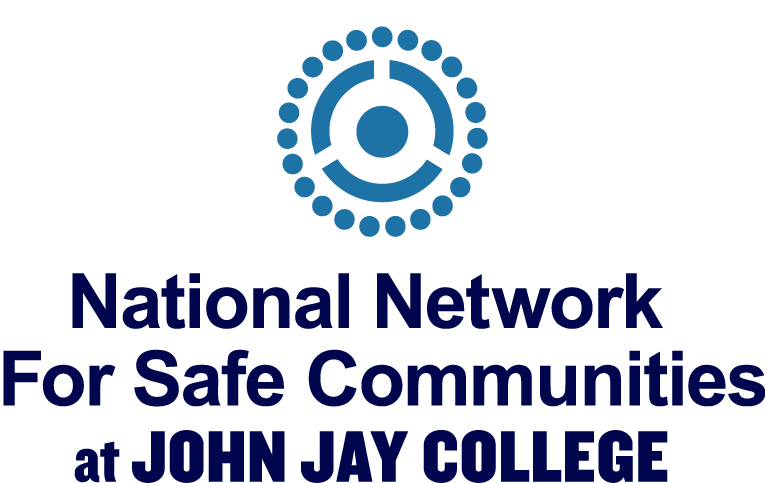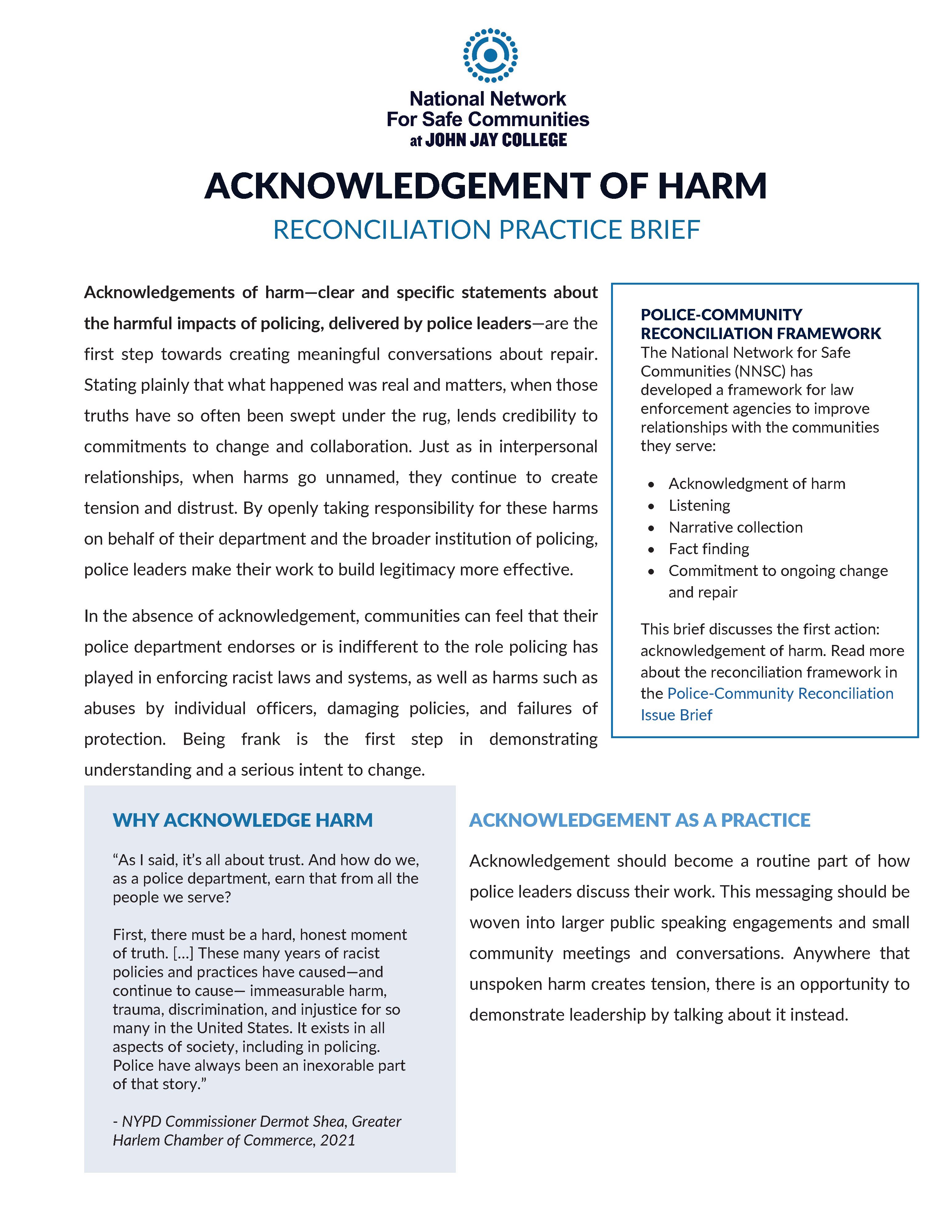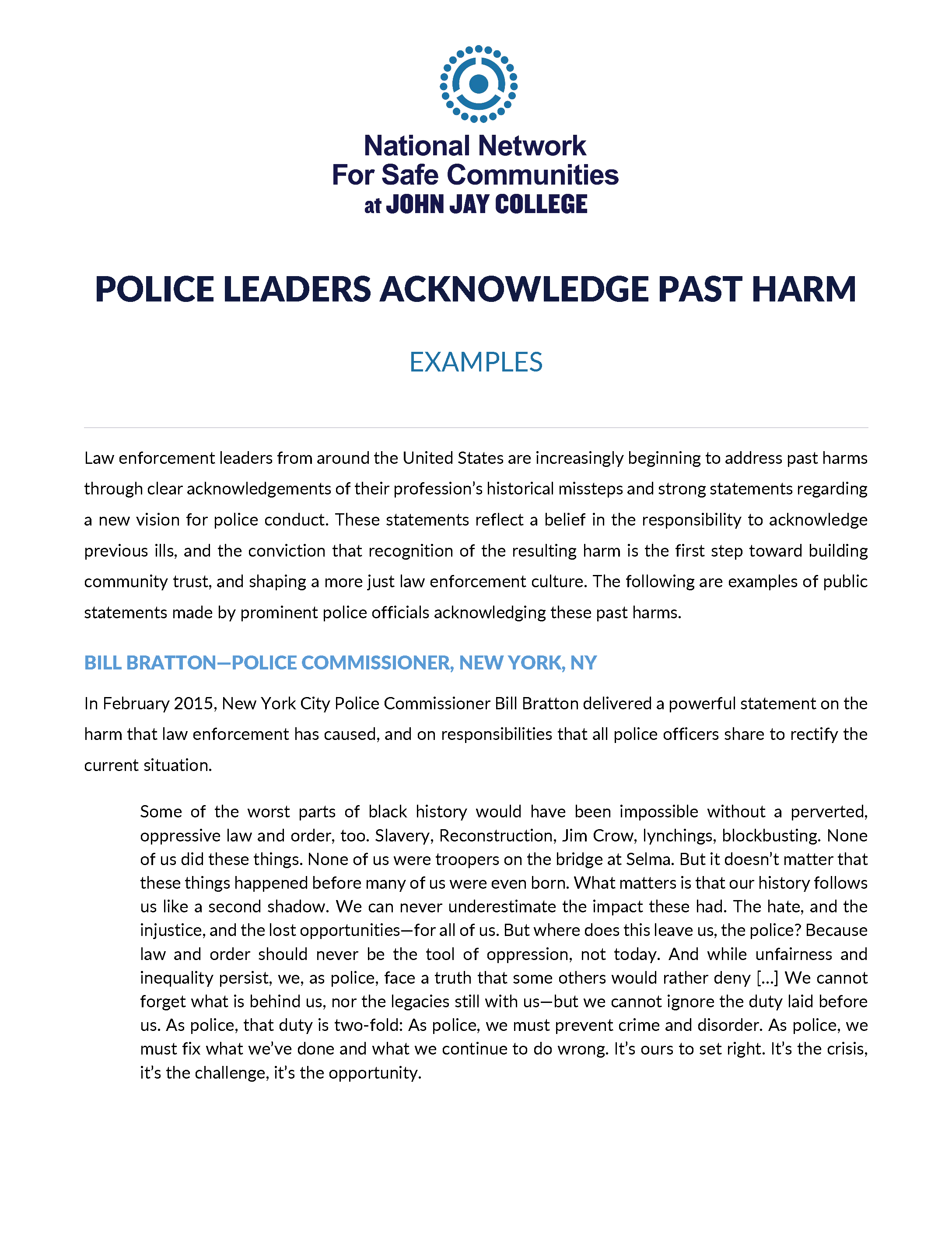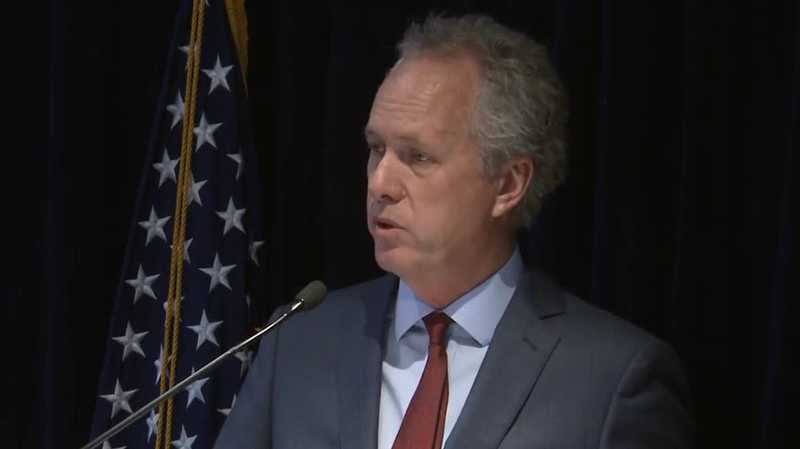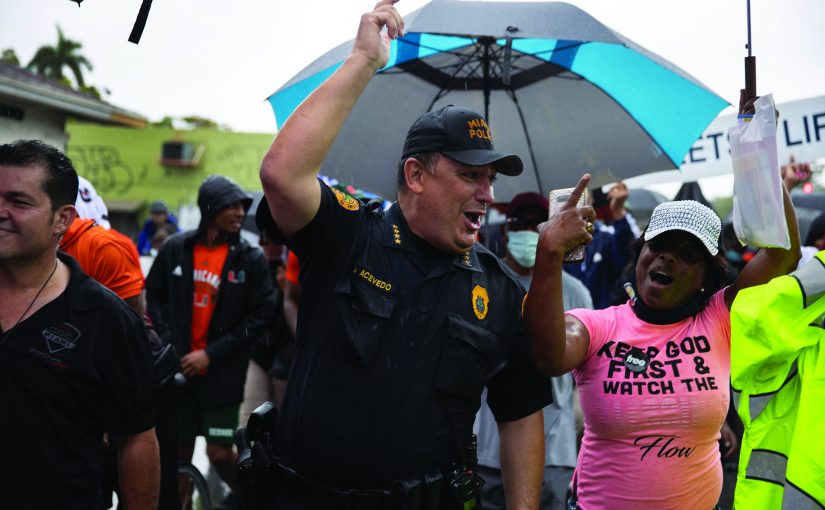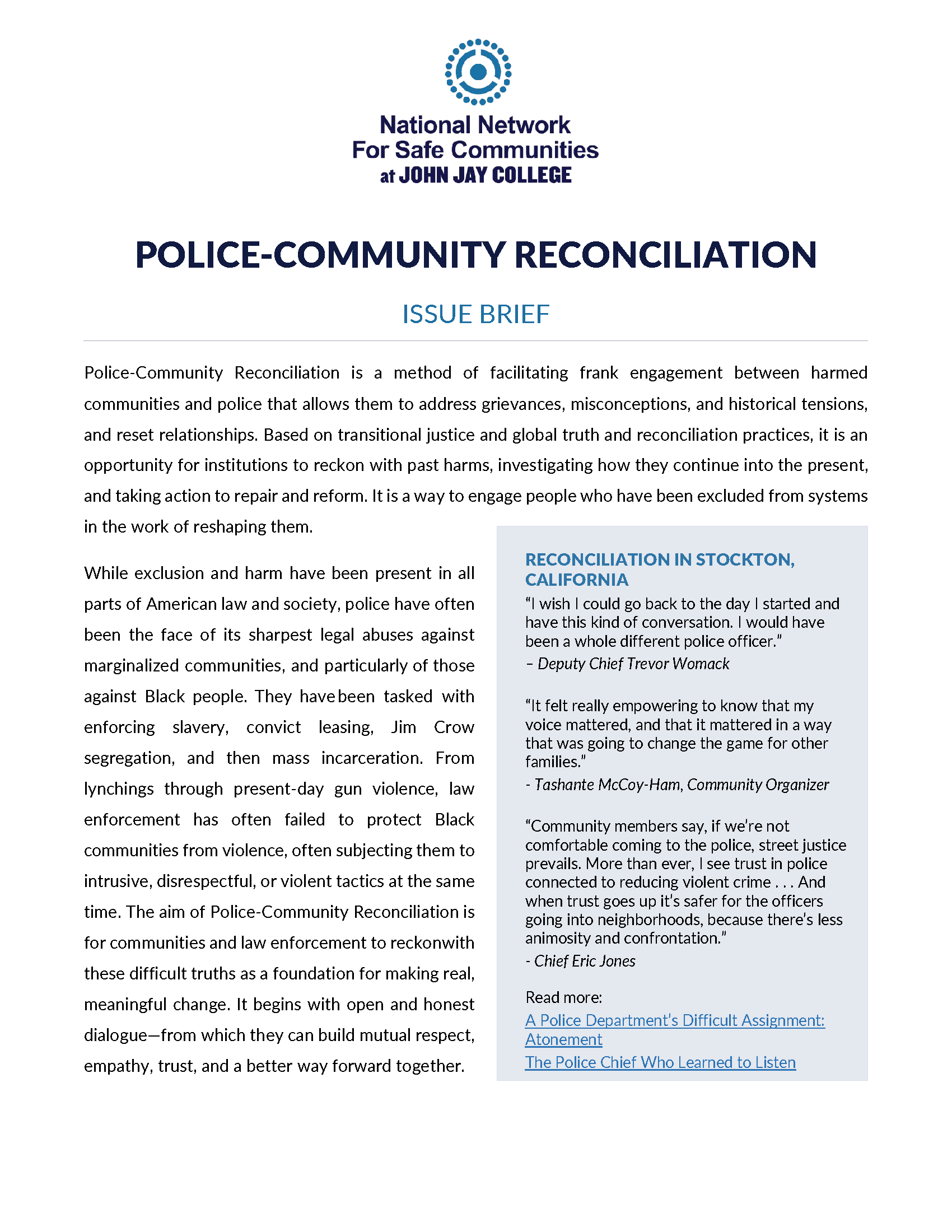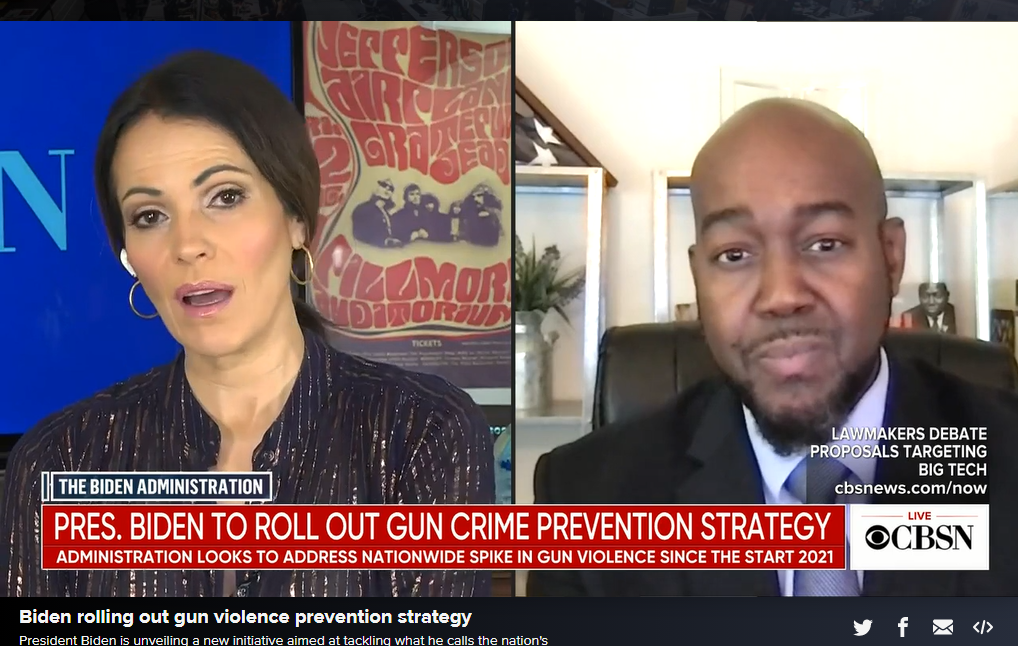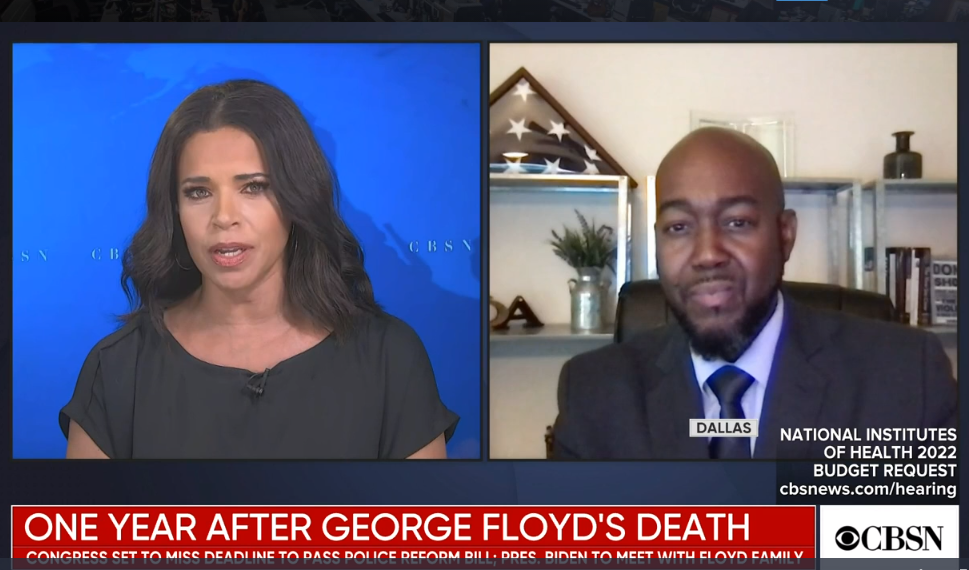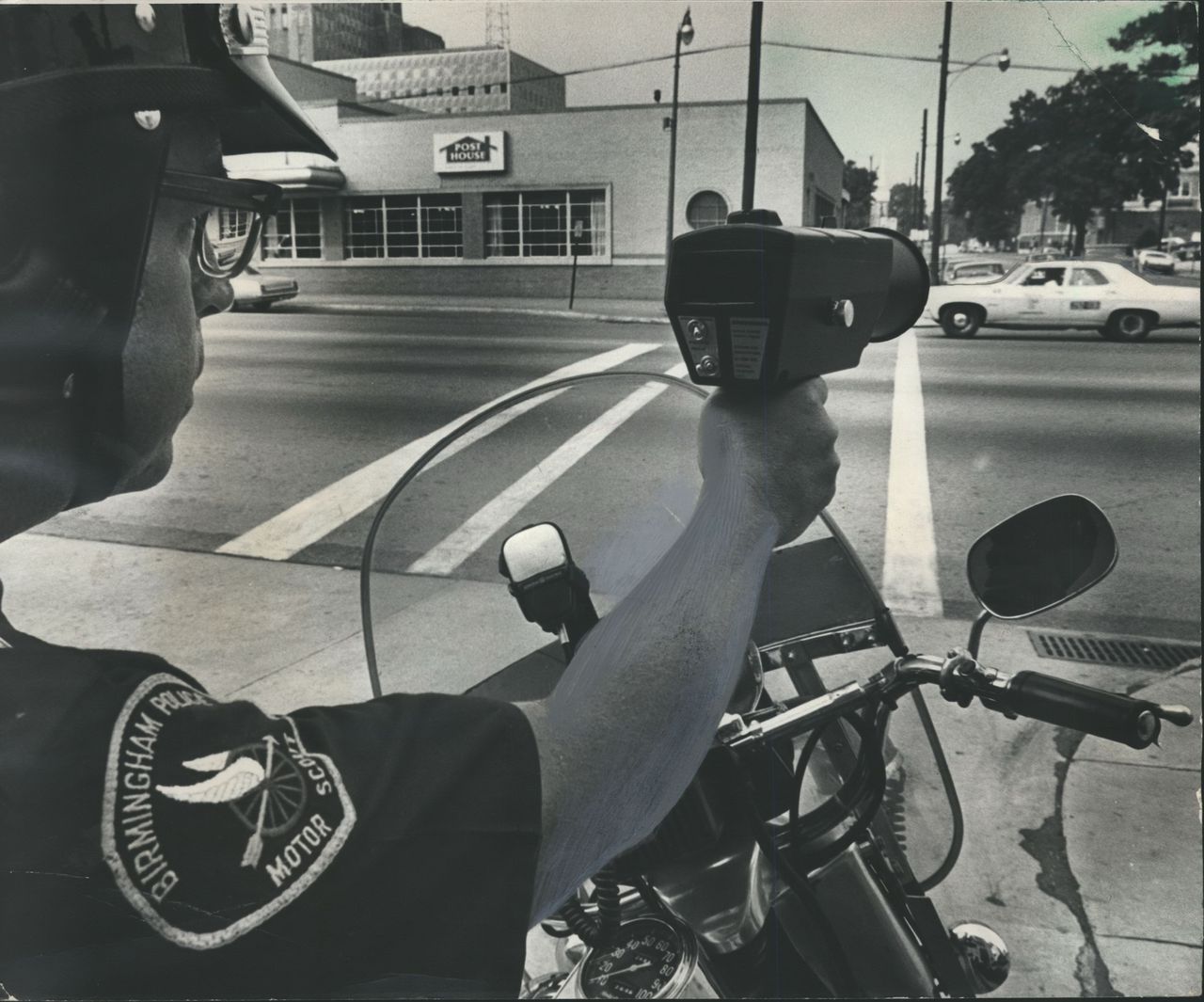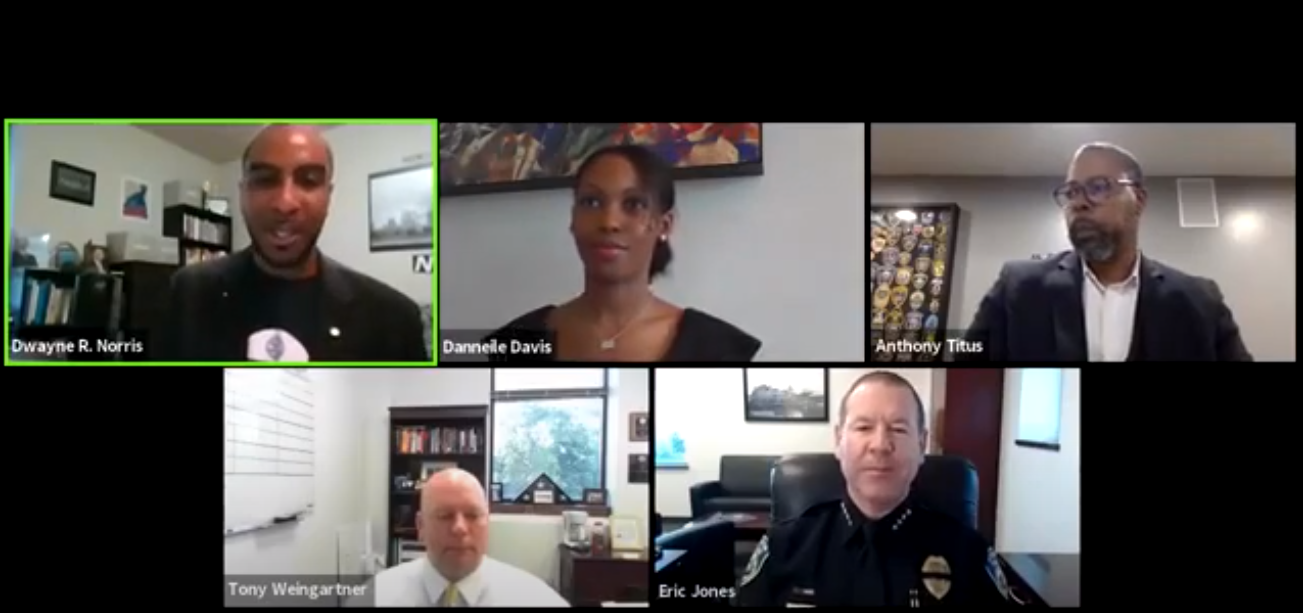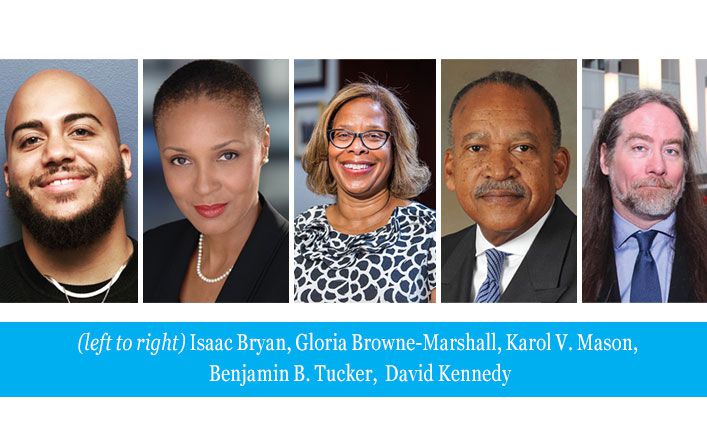February 16, 2024
Acknowledgement of Harm: Reconciliation Practice Brief
Acknowledgements of harm—clear and specific statements about the harmful impacts of policing, delivered by police leaders—are the first step towards creating meaningful conversations about repair. Stating plainly that what happened was real and matters, when those truths have so often been swept under the rug, lends credibility to commitments to change and collaboration. Just as in interpersonal relationships, when harms go unnamed, they continue to create tension and distrust. By openly taking responsibility for these harms on behalf of their department and the broader institution of policing, police leaders make their work to build legitimacy more effective.
